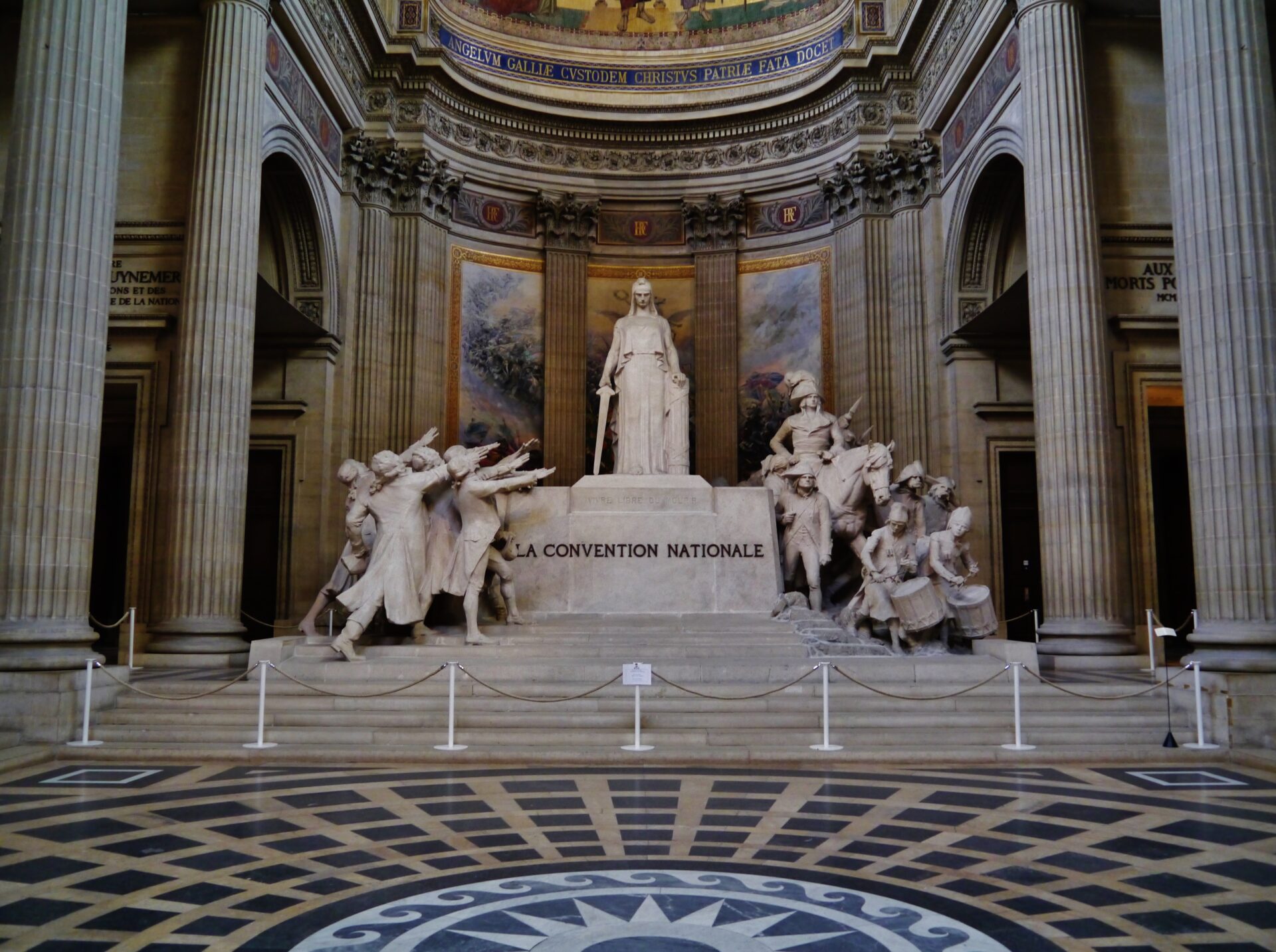In theory the election of deputies to the National Convention in 1792 marked the beginning of political democracy in France. Virtually all male citizens were invited to the polls.
Yet only 10 percent of the potential electorate of 7 million actually voted; the rest abstained or were turned away from the polls by the watchdogs of the Jacobin clubs, ever on the alert against “counterrevolutionaries.”
The Convention was numerically dominated by the Center, or the Plain, but again, as in the Legislative Assembly, the Plain was politically irresolute, though now sympathetic to a republic. Many ties existed between the Gironde on the right and the Mountain (so named because its deputies sat high up in the meeting hall), who made up the left.
Gironde and Mountain united to declare France a republic on September 21, 1792. The Girondins wanted a breathing spell in revolutionary legislation; they also defended provincial interests against possible encroachments by Paris. The Gironde, therefore, favored a large measure of federalism—which in the revolutionary vocabulary meant decentralization and a national government limited by many checks and balances.
The details were set forth in a draft constitution completed early in 1793 by the marquis de Condorcet: The executive and the legislature would be independent of each other and separately elected; the results of elections would be adjusted according to proportional representation; laws would be submitted to a popular referendum; and voters could recall unworthy officials. But the leaders of the Mountain denounced federalism and advocated an all-powerful central government.
The chief spokesman for the Mountain was Maximilien Robespierre (1758-1794). This earnest young lawyer did not look like a revolutionary. He powdered his hair neatly and wore the knee breeches of the Old Regime. Yet Robespierre was a political extremist whose speeches were lay sermons couched in the language of a new faith. Apparently Robespierre was sure that he knew the general will, and that it demanded a Republic of Virtue. If the French would not act in a free and virtuous fashion voluntarily, then, as Rousseau had recommended, they should be “forced to be free.”
Robespierre and the Republic of Virtue triumphed. The Mountain won out over the Gironde in the Convention. The first step came when, after one hundred hours of continuous voting, the Convention declared the king, “Citizen Louis Capet,” guilty of treason, and by a narrow margin sentenced him to the guillotine without delay. Louis XVI died bravely on January 21, 1793.
In February the Convention rejected Condorcet’s draft constitution and declared war on Britain, Spain, and the Netherlands. France now faced a formidable coalition of opponents, including Austria and Prussia. In March the French army suffered a series of defeats in the Low Countries, and in April its Girondin commander deserted to the enemy.
Marat now loudly denounced many Girondists as traitors; the Girondin deputies countered by calling for the impeachment of Marat, who was brought before a special tribunal and triumphantly acquitted. In July, Marat was assassinated in his bath by Charlotte Corday, a young woman wielding a butcher’s knife who was convinced that she was a new Joan of Arc called to deliver France from Jacobin radicalism.
By then, however, the Girondins had been completely vanquished. In the face of unemployment, high prices, and shortages of food, soap, and other necessities, they had little to prescribe except more laissez faire. The sections, or wards, of Paris demanded price controls and food requisitioning; they also pressed for the expulsion of Girondins from the Jacobin clubs and the Convention.
Finally, on June 2, 1793, a vast crowd of armed sans- culottes from the sections, following the precedent of August 1792, invaded the hall and forced the arrest of twenty-nine Girondin deputies. Backed by these armed Parisians, the Mountain intimidated the Plain, and the Convention consigned the arrested Girondins to the guillotine. The Reign of Terror had begun.

